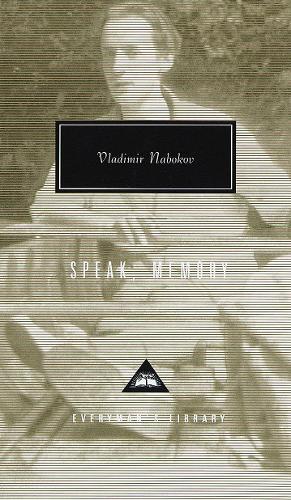
Speak, Memory
(Hardback)
Available Formats
Publishing Details
Speak, Memory
By (Author) Vladimir Nabokov
Introduction by Brian Boyd
Everyman
Everyman's Library
15th December 1999
29th March 1999
United Kingdom
Classifications
General
Non Fiction
Literary studies: fiction, novelists and prose writers
Literary studies: c 1900 to c 2000
813.54
Physical Properties
Hardback
344
Width 129mm, Height 211mm, Spine 25mm
484g
Description
Nabokov''s perspective on his life is like no other conventional autobiography. The author tells his life story in the same mercurial, ironic and tender style as that which he used in his greatest novels.'
Reviews
"[Nabokov] has fleshed the bare bones of historical data with hilarious anecdotes and with a felicity of style that makes "Speak, Memory" a constant pleasure to read. Confirmed Nabokovians will relish the further clues and references to his fictional works that shine like nuggets in the silver stream of his prose." --"Harper's"
"Scintillating...One finds here amazing glimpses into the life of a world that has vanished forever." --"New York Times"
" [Nabokov] has fleshed the bare bones of historical data with hilarious anecdotes and with a felicity of style that makes "Speak, Memory" a constant pleasure to read. Confirmed Nabokovians will relish the further clues and references to his fictional works that shine like nuggets in the silver stream of his prose." -- "Harper' s"
" Scintillating... One finds here amazing glimpses into the life of a world that has vanished forever." -- "New York Times"
"Nabokov has fleshed the bare bones of historical data with hilarious anecdotes and with a felicity of style that makes "Speak, Memory" a constant pleasure to read. Confirmed Nabokovians will relish the further clues and references to his fictional works that shine like nuggets in the silver stream of his prose." --"Harper's"
"Scintillating...One finds here amazing glimpses into the life of a world that has vanished forever." --"New York Times"
Author Bio
One of the twentieth century's master prose stylists, Vladimir Nabokov (1899 - 1977) was born in St Petersburg, but left Russia when the Bolsheviks seized power. He studied French and Russian literature at Trinity College, Cambridge, then lived in Berlin and Paris, where he launched a brilliant literary career. In 1940 he moved to the United States, and achieved renown as a novelist, poet, critic, and translator. He taught literature at Wellesley, Stanford, Cornell, and Harvard. In 1961 he moved to Montreux, Switzerland, where he died in 1977. His first novel in English was The Real Life of Sebastian Knight, published in 1941. His other books include Ada or Ardor (1969), Laughter in the Dark (1933), Pale Fire (1962), the short story collection Details of a Sunset (1976) and Lolita (1955), his best-known novel.
